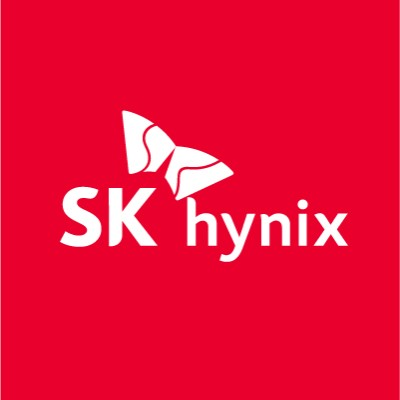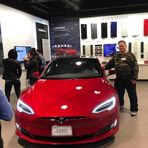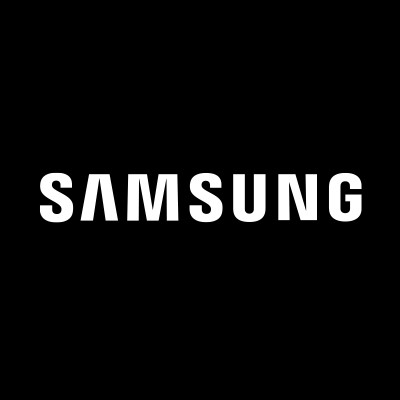Tesla's $16.5 Billion Chip Deal Boosts Samsung, Powers AI Future
July 31, 2025, 3:40 pm
SK hynix
BusinessEnergyTechFinTechHardwareIndustryITLEDProductSensorsTechnology
Location: United States, California, San Jose
Tesla
CarEnergyTechFutureITMobilityProductProviderStorageVehiclesWebsite
Location: United States, Texas, Austin
Samsung Electronics America
ElectronicsFinTechHardwareHomeLEDSemiconductorServiceSmartTechnologyWearables
Location: United States, California, San Francisco
Tesla inked a monumental $16.5 billion deal with Samsung. This secures next-generation AI6 chips. Production will ignite Samsung's new Taylor, Texas facility. These advanced semiconductors power Tesla's future: autonomous vehicles, humanoid robots like Optimus, and expansive data centers. The partnership offers a critical boost to Samsung's struggling foundry division, which previously reported significant losses and a smaller market share compared to rivals like TSMC. For Tesla, it cements a strategic push for vertical integration and technological independence in core components. Elon Musk emphasized direct oversight for production optimization in Texas. The deal spans years, impacting market dynamics profoundly. This significant investment reshapes the AI chip landscape, accelerating innovation for both giants. It marks a pivotal moment for global tech supply chains, highlighting the critical demand for cutting-edge AI hardware. Expect long-term implications for the automotive and robotics sectors.
The Deal's Epic Scope
Tesla solidified a colossal $16.5 billion agreement. Samsung Electronics stands as the key partner. This deal targets next-generation AI6 chips. Production centers on Samsung's new Taylor, Texas factory. This facility becomes a strategic hub. The chips are vital. They power Tesla's ambitious projects. Autonomous driving systems depend on them. Humanoid robots like Optimus require immense processing. Data centers also demand this advanced hardware. This commitment spans years. It begins in late 2025. It continues through 2033.
Samsung's Critical Lifeline
The deal offers Samsung a crucial lifeline. Its contract chipmaking unit faced severe headwinds. Samsung holds a mere 8% of the global foundry market. TSMC dominates with 67%. Losses for Samsung's foundry business mounted. Estimates suggest a $3.6 billion deficit in the first half alone. Attracting major clients proved difficult. This Tesla contract provides a major boost. It represents Samsung's first significant order for the Taylor plant. The factory’s completion faced delays. This deal re-energizes the project. Samsung's stock reacted positively. Shares surged, reflecting investor confidence. The company seeks to reduce losses. It aims to compete more effectively.
Tesla's Drive for Independence
Tesla pursues technological independence. It shifts towards in-house chip design. The company moved away from external platforms years ago. Its FSD Computer, Hardware 3, marked a turning point. Samsung produced that initial chip. Tesla continues this vertical integration strategy. The AI4 chip also originated with Samsung. The AI5 design, newly finalized, goes to TSMC. Production of AI5 starts in Taiwan, then Arizona. The AI6 deal with Samsung solidifies this multi-faceted approach. Tesla maintains partnerships with industry leaders. Yet, it controls core component design. This ensures innovation speed. It reduces reliance on external roadmaps. The strategy aims for unparalleled performance.
Strategic Location, Personal Oversight
The Taylor, Texas factory location holds strategic importance. It sits conveniently close to Elon Musk's residence. This proximity allows for direct engagement. Musk emphasized personal oversight. He pledged to accelerate production progress. Tesla plans to assist in factory optimization. This collaboration aims for peak efficiency. Such direct involvement underscores the deal's significance. It highlights Tesla's commitment to the chip's success. The partnership extends beyond simple procurement. It involves deep operational synergy.
Market Implications and Future Growth
The $16.5 billion figure is substantial. Yet, actual production volume could vastly exceed it. Tesla's future demand for AI processing will grow exponentially. Its robotaxi ambitions are immense. Optimus robots will scale up. Data centers also demand ever more power. This indicates potential for further investment. The contract terms remain confidential in part. However, its long-term nature is clear. Samsung aims to mass-produce 2-nanometer process chips. This advanced manufacturing boosts performance significantly. It increases energy efficiency. Securing large orders for this bleeding-edge technology is vital for Samsung's competitive edge. Tesla's contract offers that critical scale. It validates Samsung's technological prowess.
Global Chip Landscape
The global chip market is intensely competitive. TSMC remains the undisputed leader. Samsung battles fiercely for market share. It faces challenges in advanced memory chips. SK Hynix and Micron lead in High Bandwidth Memory (HBM). These chips are crucial for high-performance AI solutions. The Tesla deal strengthens Samsung's foundry position. It signals a renewed push in custom chip manufacturing. The AI chip segment is booming. Demand far outstrips existing supply. This partnership ensures a dedicated pipeline for Tesla. It also diversifies the critical AI chip supply chain. Such large-scale deals are paramount for driving technological advancement globally. They shape future industry leadership and national competitiveness. Supply chain resilience remains a top priority for major tech firms.
Long-Term Vision
Tesla envisions itself as an AI and robotics company. Chips form the absolute foundation of this transformation. The AI6 chip is central to this vision. It will drive the next generation of Tesla products. The company's future depends on robust, high-performance silicon. This deal secures that future. It reinforces Tesla's position at the forefront of innovation. It solidifies Samsung's role as a key enabler. The strategic alliance fosters mutual growth. Both companies gain immensely. The broader tech landscape will feel the ripple effects. Expect continued rapid advancements in AI applications. The era of integrated hardware and software accelerates at an unprecedented pace. This pivotal partnership is a testament to that future. It redefines industry collaboration and sets new benchmarks.


